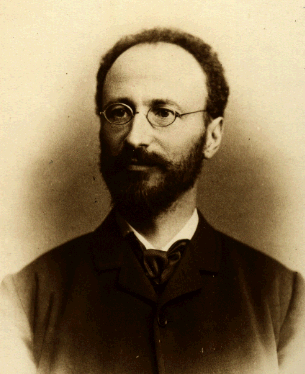Liberty Matters
Böhm-Bawerk on Price Formation and Action in Disequilibrium
 Richard Ebeling’s further elaborations in response to our initial comments, enrich the picture of Böhm-Bawerk as an economist with a wide range of interests and abilities. He made important contributions in the areas of, what we would call today, microeconomics, macroeconomics as well as capital theory. This discussion should serve to establish that his expertise went far beyond the last mentioned for which he is justly famous.
Richard Ebeling’s further elaborations in response to our initial comments, enrich the picture of Böhm-Bawerk as an economist with a wide range of interests and abilities. He made important contributions in the areas of, what we would call today, microeconomics, macroeconomics as well as capital theory. This discussion should serve to establish that his expertise went far beyond the last mentioned for which he is justly famous.In the area of microeconomics, or more accurately, price theory, and more specifically, the question of price formation, he offers a unique picture in which we see action in disequilibrium that plausibly leads to the formation of the price and the continuous clearing of the market. As Richard has pointed out, this account stays within the methodological agenda outlined by Menger, of providing an account of economic action that derives faithfully from the subjective valuations of economic actors. The subjective valuations are the cause of everything that follows from them – and it is a process in time not reducible to a set of simultaneous relations at a single point in time, as suggested by the Walrasian approach. This causal-genetic approach is a unifying fundamental in all of Böhm-Bawerk’s contributions. (It seems to me the technicalities of the APP in which he became involved was something of an aberration.)
Action in disequilibrium is something that is mostly assiduously ignored in the corpus of economic analysis. There are very few attempts to treat it as all, and even fewer to provide a systematic account. There is no standard theory of how people act in disequilibrium, beyond the notion of purposeful action on the basis of perceived alternatives and subjective valuations. In this regard then, Böhm-Bawerk’s contribution is notable. To be sure it is not meant to be an account of how price setters generally proceed in every situation. Rather it is a window into the type of process we might expect as people grapple with the unfolding, formative economic process in real time.
In the field of macroeconomics, Böhm-Bawerk effectively answers Keynes’s paradox of thrift in his discussion of Savings – which contains a more accurate portrayal of the position of J. B. Say than the straw man attacked by Keynes. By the time Keynes wrote the General Theory, however, this contribution had been mostly forgotten and clearly was never read by Keynes, who proclaimed his ignorance of capital theory and the Austrians as a sort of badge of honor.
In his discussion of the role of time in production, Böhm-Bawerk implicitly points to the notion of individual planning. Subsequent scholars in the Austrian tradition have elaborated on this, most notably Friedrich Hayek. The notion of the “the plan” has turned out to be a pivotal one raising important issues about time-intervals, uncertainty and coordination, as indicated by Richard in his final paragraphs.
Copyright and Fair Use Statement
“Liberty Matters” is the copyright of Liberty Fund, Inc. This material is put on line to further the educational goals of Liberty Fund, Inc. These essays and responses may be quoted and otherwise used under “fair use” provisions for educational and academic purposes. To reprint these essays in course booklets requires the prior permission of Liberty Fund, Inc. Please contact oll@libertyfund.org if you have any questions.